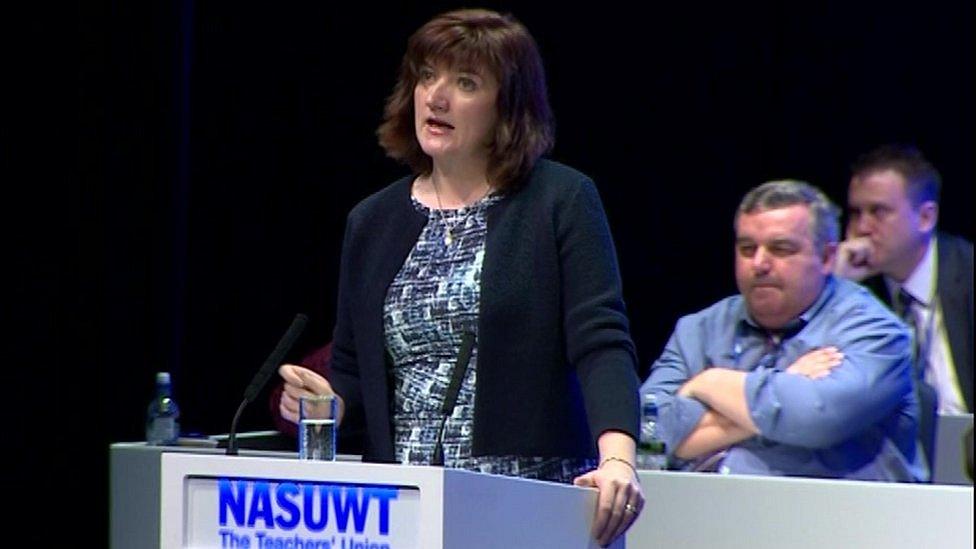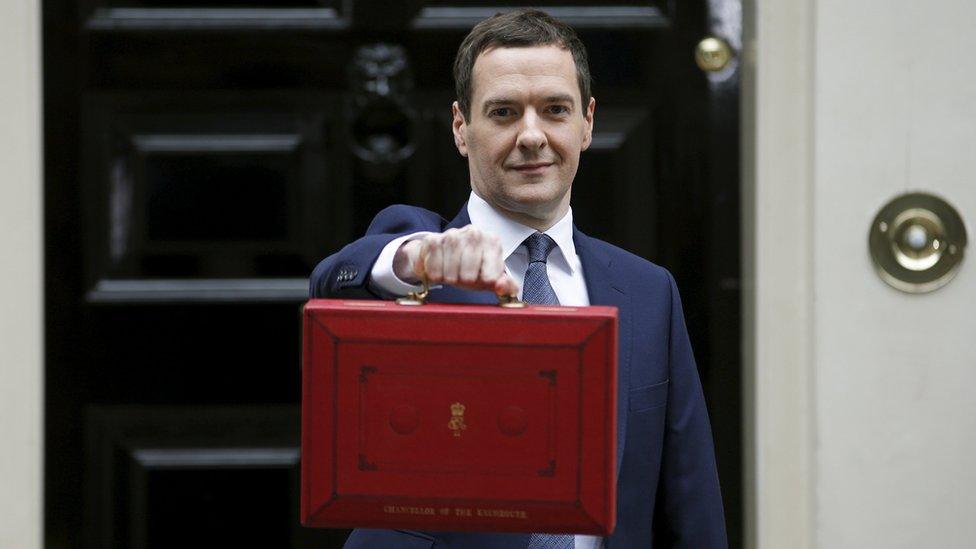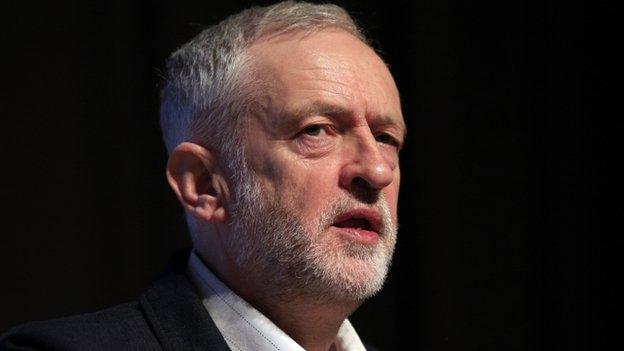Teacher workload in the spotlight
- Published

Ms Morgan addressed the NASUWT teachers' union over the Easter weekend
Over the weekend Nicky Morgan told teachers to stop complaining about their profession and start singing its praises.
Let's face it, we all like a good grumble. So get a few hundred people together who do the same job and it's pretty much inevitable those grumbles will be thoroughly aired.
But what did the Education Secretary have to offer teachers in England?
Not more money. George Osborne is holding fast to his limit of an average 1% pay increase across the public sector.
Instead in her speech at the NASUWT teachers' union she brandished copies of not one, not two, but three workload reviews.
One particular bone of contention is marking - or rather deep marking. That could mean the teacher marking with written remarks, the pupil responding, then the teacher commenting in writing again.
The first time I read a thread on social media about whether the watchdog, Ofsted, really cared about what colours a dialogue of this kind was written in I thought it was a joke.
The bit about glittery pens was most definitely satire.
Ofsted says it's all a myth and took to social media with coloured pens to point that out in in a pithy fashion over the weekend.
But if you speak to teachers, these myths have somehow become part of the fabric of expectations.
The marking workload review suggested that instead there should be a clear understanding of what is meaningful and what is manageable.
On lesson planning there was a message for ministers too. In future changes should be brought in with enough of a lead in time to allow proper planning.
A challenge to say the least with all the curriculum changes in England.
And on data the report advocates a minimal approach to gathering only what can definitely be useful.
All three reviews are short and couched in very sensible language. The test for weary teachers will be whether they do actually help common sense prevail.
So back to pay.
It's around now the reports from the independent public pay review bodies are usually published. These expert panels pronounce after hearing evidence from the government, employers and trade unions.
They keep a profile lower than a pancake. That means shunning the company of journalists.
The School Teachers Review body report this year will make interesting reading.
With little room to suggest an actual pay increase, it is the story the panel weaves around the data which will matter.
Within the careful paragraphs there are likely to be some more pointed sections on recruitment to teacher training, and the retention of teachers.
Who knows, they might even say something about workload.
- Published16 March 2016

- Published25 March 2016
